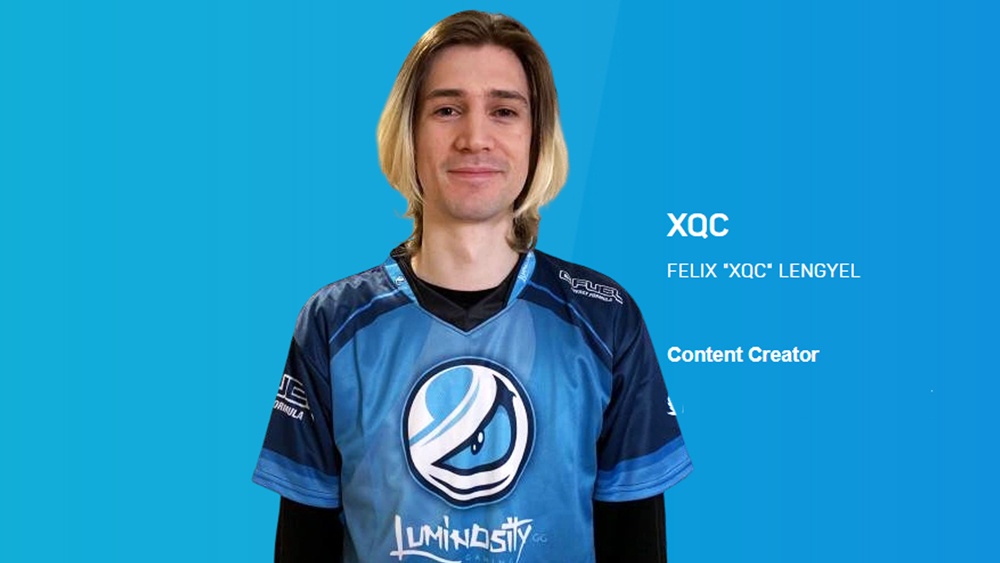Félix Lengyel, universally recognized as the streaming phenomenon xQc, recently offered a rather unfiltered assessment of his experiences on Russian Dota 2 servers. His commentary, delivered with his characteristic blend of exasperation and candor, painted a picture distinctly removed from casual entertainment. According to xQc, these digital battlegrounds embody an unforgiving intensity where even a perfectly executed match can spiral into a deluge of hostility following a single, critical error.
“Bro, Russian servers are something else,” xQc recounted during a recent broadcast. “You can be 30-0, but if you die once, it’s over. Mental explosion, racist phrases from everyone for no reason. It`s just insane. It seems like these guys don`t know how to smile at all and don`t know what it is to have a good time. They hate everything.”
This candid glimpse from a streamer accustomed to the digital gladiatorial arena of competitive gaming spotlights a pervasive, albeit often unspoken, aspect of online multiplayer communities: the tenuous boundary between fierce competitive spirit and outright toxicity.
The High Stakes of the Digital Battlefield
Dota 2, celebrated globally for its intricate mechanics, profound strategic depth, and a demanding skill ceiling, inherently attracts a highly dedicated and often passionate player base. The game`s complexity dictates that every decision, every spell cast, and every item purchased holds the potential to critically influence the match`s trajectory. In such an environment, mistakes are rarely perceived as simple errors; they are often interpreted as direct affronts to team cohesion and effort, incurring not only valuable in-game resources but, perhaps more critically, a blow to collective pride.
xQc`s experience, particularly the “one mistake and it`s over” sentiment, resonates deeply with many who have navigated the more competitive echelons of online gaming. It strongly suggests a prevailing culture where perfection is the unspoken baseline expectation, and any deviation from this standard is met with a disproportionate surge of hostility. This dynamic extends beyond the mere act of losing; it`s about the perceived failure to uphold a stringent, often unarticulated, criterion of play. The inherent irony, of course, is that a game designed for strategic entertainment frequently transforms into a high-pressure examination of one`s reflexes and decision-making capabilities under a constant barrage of verbal aggression. One might reasonably question if the true objective for some is genuine victory, or merely the successful avoidance of a teammate`s wrath.
Beyond the Screen: Culture, Anonymity, and the “Hardcore” Ethos
While xQc`s observations specifically highlighted Russian servers, his insights inadvertently touch upon universal facets of online behavior. The anonymity intrinsic to internet interactions, when combined with the fiercely competitive nature of games like Dota 2, frequently lowers inhibitions, enabling players to express frustrations in ways they would almost certainly refrain from in face-to-face engagements.
The perception that players on these servers “don`t know how to smile” or “hate everything” offers a powerful, though potentially hyperbolic, characterization of an environment largely devoid of typical social courtesies. It points towards a distinct “hardcore” ethos where quantifiable results undeniably supersede camaraderie, and perceived efficiency consistently trumps empathy. For a segment of the player base, this intense, no-holds-barred approach forms a significant part of the game`s appeal, fostering an environment where only the most resilient players are believed to thrive. Conversely, for many others, it represents a substantial barrier to both entry and sustained enjoyment.
It is also pertinent to recall xQc`s earlier comparison involving League of Legends, where he famously dismissed Riot Games` flagship MOBA as “too simple and for children” in contrast to Dota 2. This earlier stance underscores his appreciation for complexity and depth in gaming experiences. However, his recent comments suggest that even for a player who actively seeks out such challenging engagements, there exists a discernible limit to the kind of “challenge” derived from incessant in-game hostility. The implication, perhaps, is that the strategic and mechanical intricacies of the game itself should constitute the primary challenge, rather than the precarious navigation of a minefield of teammate aggression.
The Unspoken Cost of Unchecked Toxicity
The widespread prevalence of such toxic online environments carries tangible, detrimental consequences. It demonstrably deters new players from engaging, discourages casual participation, and can even contribute significantly to burnout among highly seasoned veterans. For prominent streamers like xQc, who broadcast their gameplay experiences live to millions, these volatile interactions become public spectacles, inadvertently exposing the darker, often less glamorous, underbelly of gaming culture to a vast audience. While such controversies can undeniably generate viewership, they also serve as a stark and unavoidable reminder of the persistent behavioral issues that continue to plague numerous online communities.
Ultimately, xQc`s recent foray into the unforgiving realm of Russian Dota 2 servers transcends mere anecdotal complaint from a popular streamer. It stands as a vivid, compelling snapshot of the perpetual tension between the relentless pursuit of competitive excellence and the equally vital cultivation of a respectful, enjoyable gaming environment. It serves as a potent and timely reminder that while digital battlefields may offer boundless strategic depth and complexity, the most enduring challenge often lies not solely in mastering the game`s mechanics, but in skillfully navigating and enduring its most volatile human elements.

